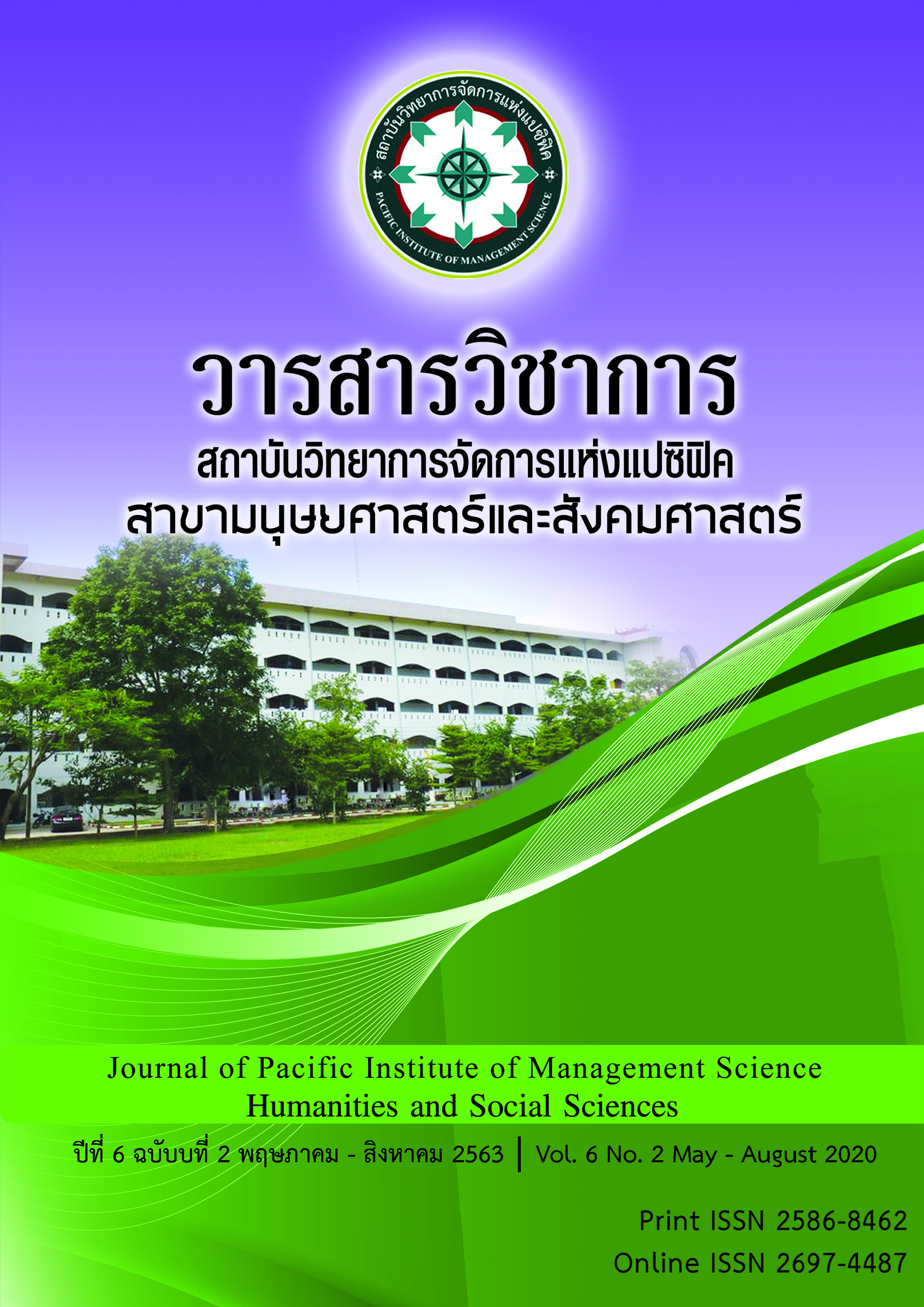Family Relationship, Life Satisfaction and Spiritual Well-being among the Elderly of the Senior Club at Klong Sam Wa Public Health Center 64
Keywords:
Family Relationship, Life Satisfaction, Spiritual Well-being, ElderlyAbstract
The objectives of this study were to 1) to study the level of relationship of the family, life satisfaction and spiritual well-being of elderly 2) to compare the spiritual well-being of elderly separated by individual factors 3) to study the relationship between family relationship and spiritual well-being of the elderly and 4) to study the relations between satisfaction in life and spiritual well-being of the elderly.
The sample of this study were 179 elderly of the elderly club at Klong Sam Wa Public health Center 64. The questionnaires had been used to collect the data which were analyzed by Statistical Package. The statistical analysis included percentage, mean, standard deviation, t-test, F-test, One-Way ANOVA, LSD and Pearson’s product moment correlation coefficient by indicating the statistical significance in .05 level and .01 level.
The research results found that 1) the levels of family relation, life satisfaction and spiritual well-being were high, 2) the elderly with different of education, income, balance of income and health status had different spiritual well-being with the statistical significance at .01 level, moreover the elderly with different sex, marital status and family members had different spiritual well-being with the statistical significance at .05 level, while the elderly with different age and occupation had not different in spiritual well-being, 3) the family relationship had positively relationship with spiritual well-being by the statistical significance at .01 level and, 4) life satisfaction had positively relationship with spiritual well-being with the statistical significance at .01 level.
References
ขจรศรี แสนปัญญา. (2553). ความวิตกกังวลต่อความตาย การมองโลกในแง่ดี ความผาสุกทางจิตวิญญาณ และการปรับตัวต่อความตายของผู้สูงอายุที่ป่วยเป็นโรคเรื้อรังในคลินิกผู้สูงอายุโรงพยาบาลพระนั่ง เกล้า จังหวัดนนทบุรี. วิทยานิพนธ์วิทยาศาสตรมหาบัณฑิต สาขาจิตวิทยาชุมชน, มหาวิทยาลัย เกษตรศาสตร์.
ชินัณ บุญเรืองรัตน์. (2551). ความผาสุกทางจิตวิญญาณ และความผาสุกของผู้สูงอายุในศูนย์พัฒนาการจัด สวัสดิการสังคมผู้สูงอายุบ้านบางแค. วิทยานิพนธ์วิทยาศาตรมหาบัณฑิต สาขาวิชาสุขภาพจิต, จุฬาลงกรณ์มหาวิทยาลัย.
รักชนก ชูพิชัย. (2550). ความผาสุกของผู้สูงอายุที่เป็นสมาชิกชมรมผู้สูงอายุ โรงพยาบาลพระนั่งเกล้าจังหวัด นนทบุรี. วิทยานิพนธ์วิทยาศาสตร์มหาบัณฑิต สาขาจิตวิทยาชุมชน, มหาวิทยาเกษตรศาสตร์.
รศรินทร์ เกรย์ และคณะ. (2555). รายได้ หนี้สิน การทําใจยอมรับกับปัญหา และความสุข. วารสารสมาคม จิตแพทย์แห่งประเทศไทย 57(3) : 347-356
สุจิตรา นิลเลิศ. (2539). ความสัมพันธ์ระหว่างการได้รับการอุปถัมภ์จากบุตรกับคุณภาพชีวิตผู้สูงอายุไทยใน ชนบทจังหวัดสุพรรณบุรี. วิทยานิพนธ์ประชากรศาสตรดุษฎีบัณฑิต สาขาวิชาประชากรศาสตร์, บัณฑิต วิทยาลัย มหาวิทยาลัยมหิดล.
สุชา จันทน์เอม. (2536). จิตวิทยาพัฒนาการ. พิมพ์ครั้งที่ 3 กรุงเทพมหานคร : ไทยวัฒนาพาณิช.
วันทนี ขําเพ็ง. (2540). ปัจจัยที่มีความสัมพันธ์กับคุณภาพชีวิตผู้สูงอายุชนบทจังหวัดนครราชสีมา. กรุงเทพ : มหาวิทยาลัยมหิดล.
ศรีเรือน แก้วกังวาล. (2530). จิตวิทยาพัฒนาการ=Psychology of development. พิมพ์ครั้งที่ 4 เชียงใหม่ : ภาควิชาจิตวิทยา คณะมนุษยศาสตร์ มหาวิทยาลัยเชียงใหม่.
Bolander, V.B. (1994). Sorensen and Luck Mann’s basic nursig : A psychophysiology approach. Philadelphia: W.B Saunders Company.
Riley,M.W.(1972). Aging and society : a sociology of age stratification. New York: Russell Sage Foundation.
Hightfield, M. F. and V.B Carson. (1983). “Spirtual need of patient: are they recongnized?.” Cancer Nursing 6(3): 187-192.
Downloads
Published
Issue
Section
License
บทความที่ได้รับการตีพิมพ์เป็นลิขสิทธิ์ของ สถาบันวิทยาการจัดการแห่งแปซิฟิค
ข้อความที่ปรากฏในบทความแต่ละเรื่องในวารสารวิชาการเล่มนี้เป็นความคิดเห็นส่วนตัวของผู้เขียนแต่ละท่านไม่เกี่ยวข้องกับสถาบันวิทยาการจัดการแห่งแปซิฟิค และคณาจารย์ท่านอื่นๆในสถาบันฯ แต่อย่างใด ความรับผิดชอบองค์ประกอบทั้งหมดของบทความแต่ละเรื่องเป็นของผู้เขียนแต่ละท่าน หากมีความผิดพลาดใดๆ ผู้เขียนแต่ละท่านจะรับผิดชอบบทความของตนเองแต่ผู้เดียว







